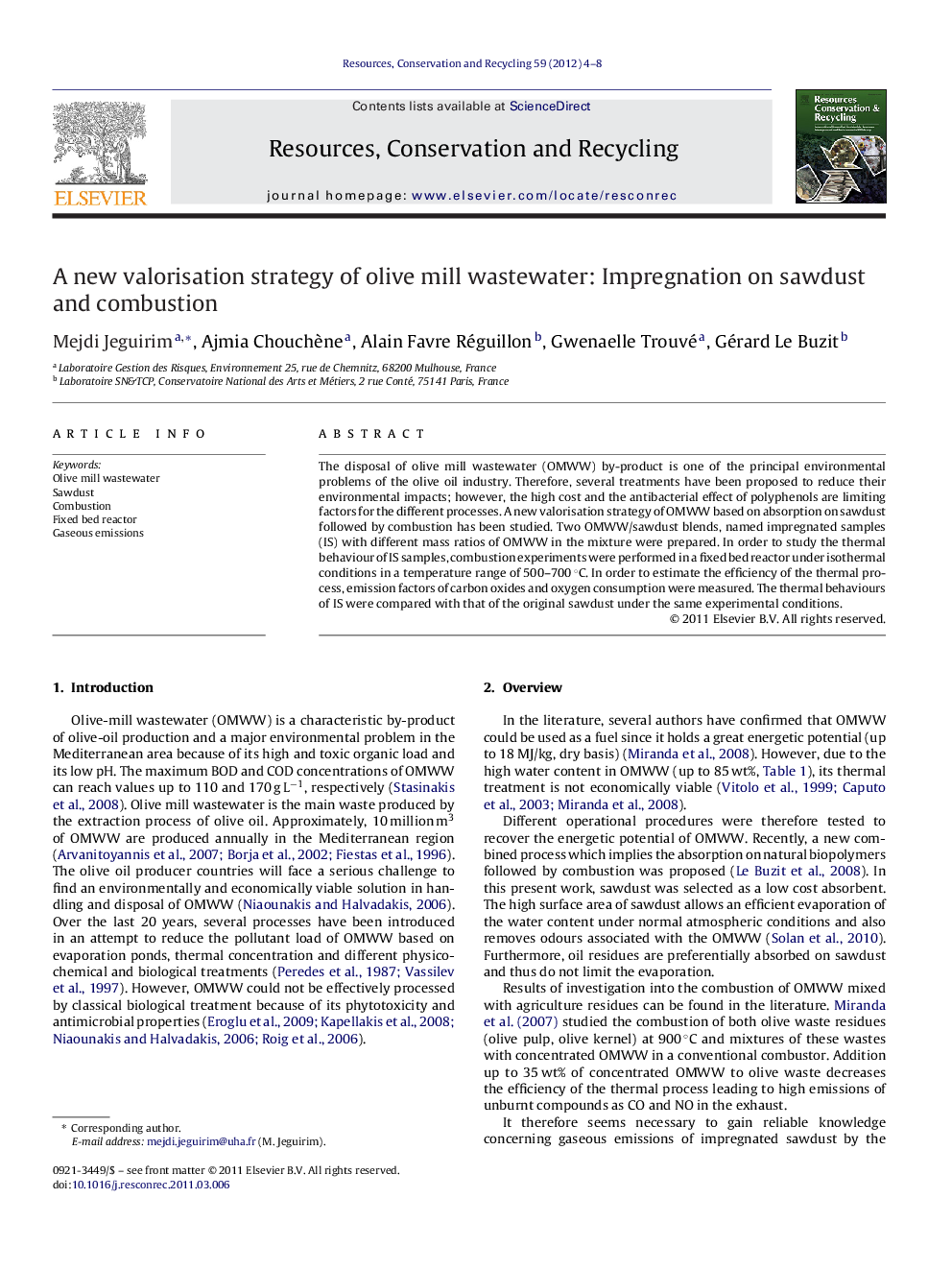| Article ID | Journal | Published Year | Pages | File Type |
|---|---|---|---|---|
| 1063356 | Resources, Conservation and Recycling | 2012 | 5 Pages |
Abstract
The disposal of olive mill wastewater (OMWW) by-product is one of the principal environmental problems of the olive oil industry. Therefore, several treatments have been proposed to reduce their environmental impacts; however, the high cost and the antibacterial effect of polyphenols are limiting factors for the different processes. A new valorisation strategy of OMWW based on absorption on sawdust followed by combustion has been studied. Two OMWW/sawdust blends, named impregnated samples (IS) with different mass ratios of OMWW in the mixture were prepared. In order to study the thermal behaviour of IS samples, combustion experiments were performed in a fixed bed reactor under isothermal conditions in a temperature range of 500-700 °C. In order to estimate the efficiency of the thermal process, emission factors of carbon oxides and oxygen consumption were measured. The thermal behaviours of IS were compared with that of the original sawdust under the same experimental conditions.
Related Topics
Physical Sciences and Engineering
Energy
Renewable Energy, Sustainability and the Environment
Authors
Mejdi Jeguirim, Ajmia Chouchène, Alain Favre Réguillon, Gwenaelle Trouvé, Gérard Le Buzit,
